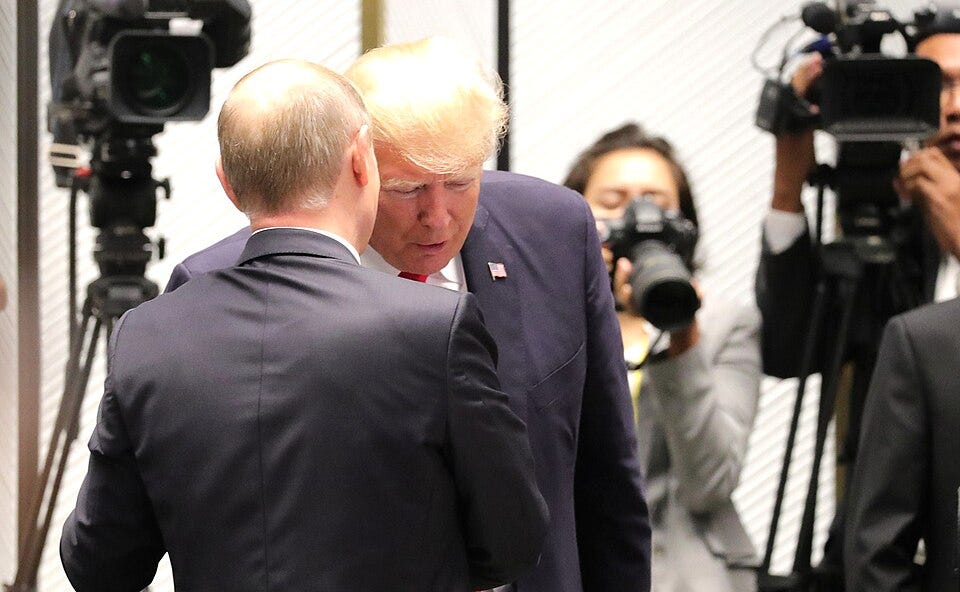'STOP!' In The Name of Trump
A rare Putin rebuke follows a policy of emboldening Russia.

Following the deadliest missile and drone attack on Kyiv since last summer early in the morning of April 24, U.S. President Donald Trump rebuked Russian leader Vladimir Putin with a message on social media.
It was notable that Trump directed his ire at Putin, whom he has been loath to criticize, rather than Ukrainian President Volodymyr Zelenskyy, whom he has falsely blamed for starting the war. In February, Trump called Zelenskyy a "dictator" and this week criticized him for making "inflammatory statements."
Some of the frustration Trump has been expressing towards Putin may come from the fact that his emissary, Steve Witkoff, a real estate magnate and golf partner of Trump's, has been traveling to Moscow and expressing optimism that a deal can be reached quickly. However, Witkoff, who has no prior diplomatic experience, may be failing to grasp that the Kremlin's goals remain maximalist.
Tatiana Stanovaya, a France-based Russia analyst, posted recently on X that Putin's goal for Ukraine remains capitulation. The steps in this capitulation include Zelenskyy's resignation, the fragmentation of Ukraine into Western and Eastern parts, the elevation of a pro-Russian government in the East with Kyiv as its capital, and its Eastern half joining a union of Russia and Belarus. She noted that this scenario remains highly unlikely and Russia lacks the resources for another full-scale invasion now, but that Putin can still try for this goal without any battlefield progress for years to come. (It is not making much battlefield progress anyway.)
Trump's record on the war is one of emboldening Russia, making it less likely that Putin will "STOP" its unprovoked invasion of Ukraine.



